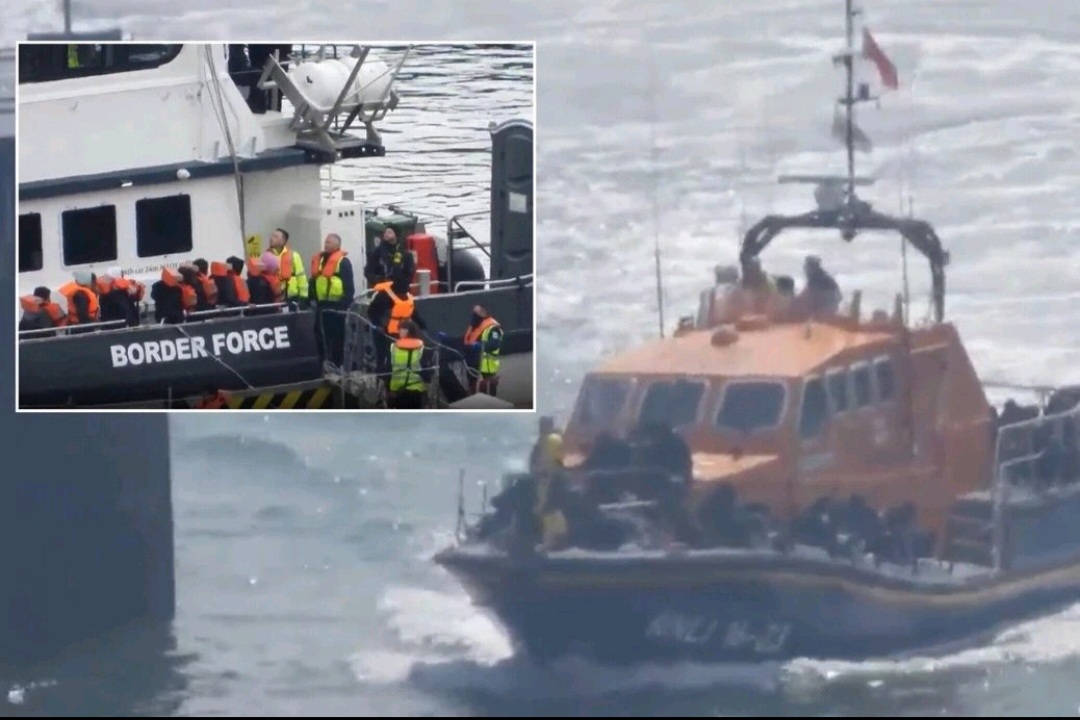More than 900 Channel migrants cross illegally to UK in less than a week with 359 arriving in one day

In recent years, the issue of migrants crossing the English Channel has become a contentious and pressing concern for both the United Kingdom and France. The latest Home Office statistics reveal a startling reality: more than 900 migrants have made the perilous journey across the Channel in less than a week.

As reported by BBC News, On Saturday alone, 359 migrants braved the treacherous waters in small boats, with fifty-one requiring rescue after their vessel ran aground on the notorious Goodwin Sands off the Kent coast. The dramatic rescue operation involving lifeboats and a Coastguard helicopter underscores the dangers faced by those attempting this journey.
These recent arrivals add to the already staggering total of 902 migrants who have crossed the Channel in just five days. This influx follows a similar pattern observed in previous months, with hundreds of individuals making the dangerous voyage in overcrowded and unseaworthy vessels. Tragically, this influx has not been without its casualties, as evidenced by the recent deaths of five migrants off the French coast.
The circumstances surrounding these crossings shed light on the complexities of the migrant crisis. Reports indicate that the overcrowded boat involved in the fatal incident off Boulogne had been stormed by a group of African migrants, resulting in clashes with those already on board. The presence of armed individuals and the desperate attempts to launch the vessel underscore the dire circumstances driving individuals to undertake such perilous journeys.
Legal proceedings following the tragic incident have revealed further challenges in addressing the crisis. Two individuals, initially identified as being in their early twenties, have claimed to be minors, casting doubt on their age and complicating the legal process.
The surge in Channel crossings has prompted calls for action from both sides of the political spectrum. The UK government has emphasized the need for cooperation with French authorities to prevent further illegal crossings and alleviate pressure on both countries. Proposals such as initiating flights to Rwanda aim to dissuade individuals from embarking on the perilous journey by offering alternative pathways for asylum seekers.
However, addressing the root causes of the migrant crisis requires a multifaceted approach that goes beyond border control measures. Socioeconomic disparities, political instability, and conflict in regions of origin compel individuals to seek refuge elsewhere, often resorting to irregular migration routes out of desperation. Addressing these underlying factors necessitates international cooperation, humanitarian assistance, and long-term solutions aimed at fostering stability and opportunity in affected regions.
As the Channel migrant crisis continues to unfold, it serves as a poignant reminder of the human cost of political inertia and global inequality. The stories of those risking their lives in search of safety and opportunity demand a concerted and compassionate response from the international community. Only through collective action and solidarity can we hope to address the root causes of this crisis and ensure a safer, more secure future for all.




